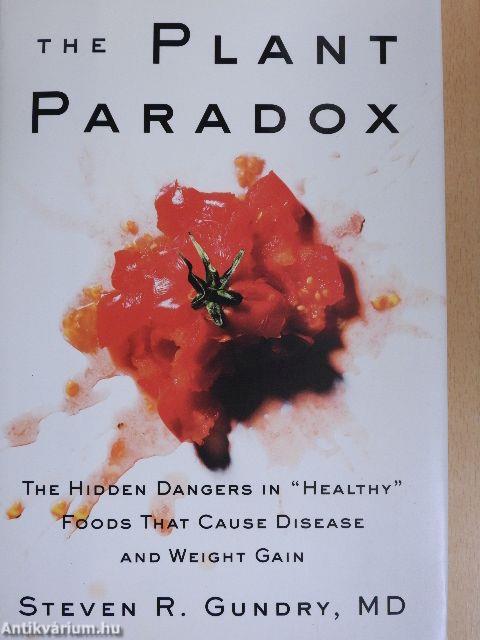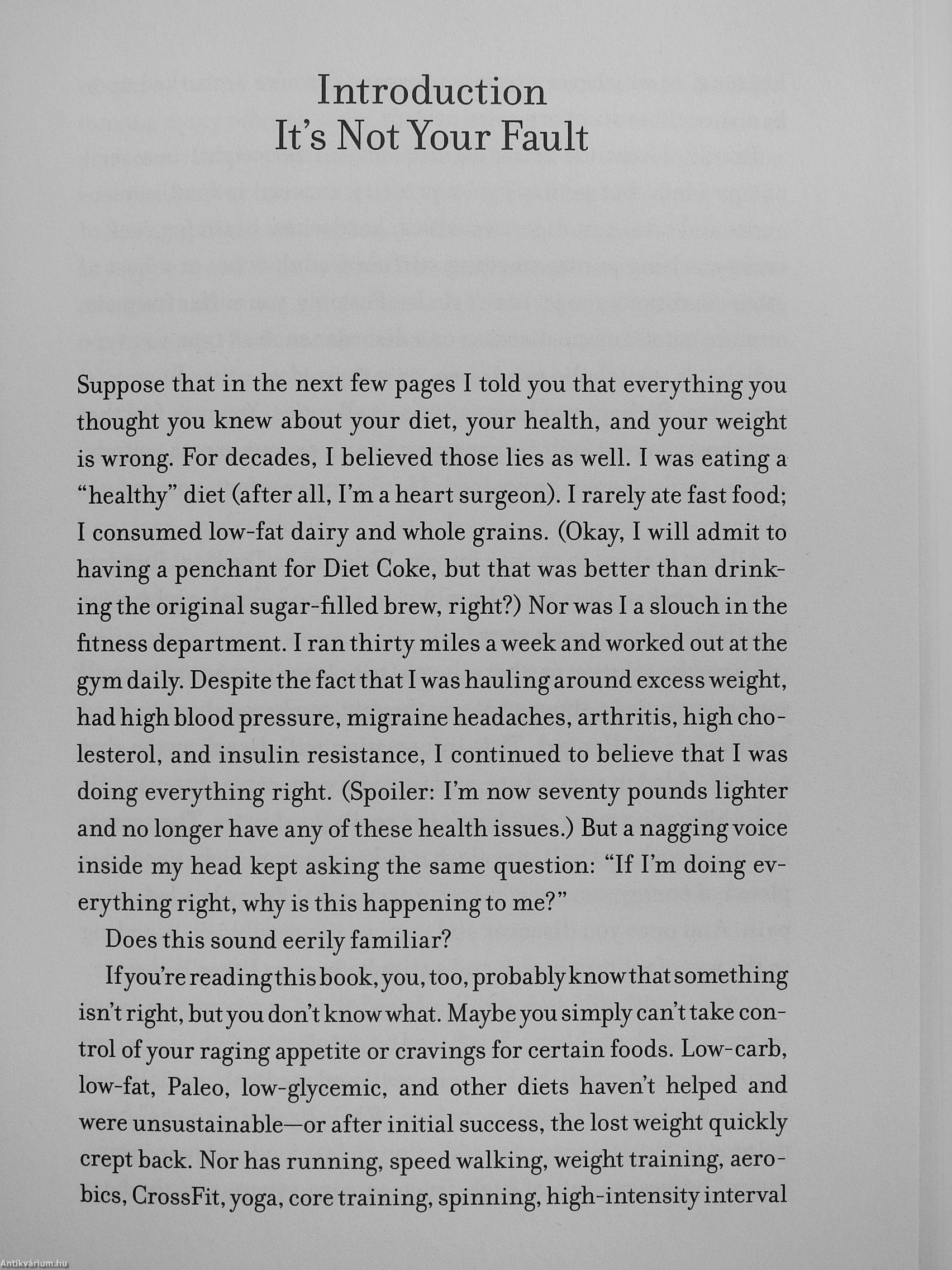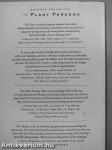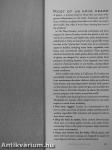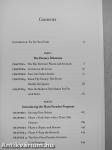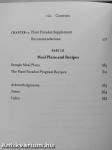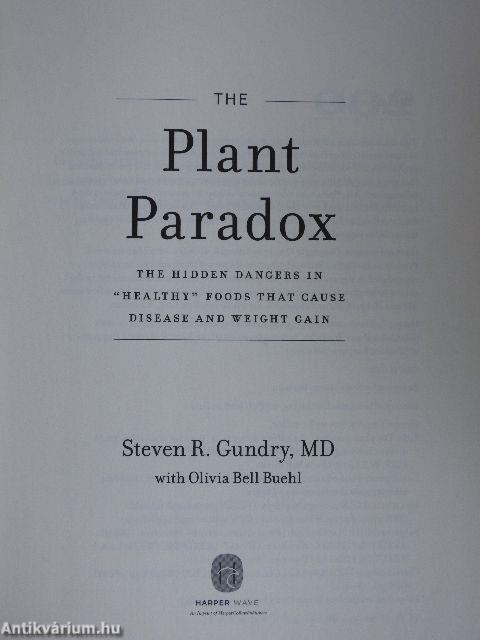1.068.249
kiadvánnyal nyújtjuk Magyarország legnagyobb antikvár könyv-kínálatát

VISSZA
A TETEJÉRE
JAVASLATOKÉszre-
vételek
The Plant Paradox
The Hidden Dangers in "Healthy" Foods that Cause Disease and Weight Gain
| Kiadó: | HarperCollins Publishers |
|---|---|
| Kiadás helye: | New York |
| Kiadás éve: | |
| Kötés típusa: | Fűzött keménykötés |
| Oldalszám: | 399 oldal |
| Sorozatcím: | |
| Kötetszám: | |
| Nyelv: | Angol |
| Méret: | 24 cm x 16 cm |
| ISBN: | 978-0-06-242713-7 |
naponta értesítjük a beérkező friss
kiadványokról
naponta értesítjük a beérkező friss
kiadványokról
Előszó
TovábbFülszöveg
advance praise for
the Plant Paradox
"The Plant Paradox elegantly explains how plants defend themselves from being consumed by humans, and how eating the wrong ones at the wrong times immeasurably
hurts our health. An eye-opening read." —Mehmet Oz, MD, professor of surgery, New York-Presbyterian/Columbia University
"It is rare that a book on health and nutrition introduces truly novel concepts, and rarer still that it backs them up with solid scientific data and clinical proof of validity—but The Plant Paradox does just that. We all owe Dr. Gundry a debt of gratitude for his insight and dedication to a new level of superb health." —Dale Bredesen, MD, professor of neurology, UCLA ScHOOL of Medicine; founding president, Buck Institute; and author of The End of Alzheimer's
" The Plant Paradox offers a true paradigm shift in the way we think about food. Whether you're paleo, gluten-free, low carb, or plant-based. Dr. Gundry's profound insights and practical advice will help... Tovább
Fülszöveg
advance praise for
the Plant Paradox
"The Plant Paradox elegantly explains how plants defend themselves from being consumed by humans, and how eating the wrong ones at the wrong times immeasurably
hurts our health. An eye-opening read." —Mehmet Oz, MD, professor of surgery, New York-Presbyterian/Columbia University
"It is rare that a book on health and nutrition introduces truly novel concepts, and rarer still that it backs them up with solid scientific data and clinical proof of validity—but The Plant Paradox does just that. We all owe Dr. Gundry a debt of gratitude for his insight and dedication to a new level of superb health." —Dale Bredesen, MD, professor of neurology, UCLA ScHOOL of Medicine; founding president, Buck Institute; and author of The End of Alzheimer's
" The Plant Paradox offers a true paradigm shift in the way we think about food. Whether you're paleo, gluten-free, low carb, or plant-based. Dr. Gundry's profound insights and practical advice will help reverse both autoimmune and neurodegenerative disease." —Terry Wahls, MD, author of The Wahls Protocol: A Radical New Way to Treat All Chronic Autoimmune Conditions Using Paleo Principles
"Dr. Gundry is one of America's greatest and most knowledgeable physicians. For years I have had the good fortune to benefit from his care; now, with The Plant Paradox, everyone can have access to Dr. Gundry's groundbreaking insight. This book is nothing short of life-changing." —Tony Robbins, author of the New York Times bestseller Unshakeable
t' I ¦ I • ' I • • ¦ ¦ I • ' f ' , ' ,1'
/
¦ ';¦,./ i' ; ' , >' l' '4 '
: i ^ ' ' i
i/ ^i'h:. i
I-y'
WLiMSiiii'-
Most of us have heard
of gluten—a protein found in wheat that can cause widespread inflammation in the body. Americans spend billions of dollars on gluten-free diets in an effort to protect their health. But what if we've been missing the root of the problem?
In The Plant Paradox, renowned cardiologist and heart surgeon Dr. Steven Gundry reveals that gluten is just one variety of a common, and highly toxic, plant-based protein called lectin. Lectins are found not only in grains like wheat but also in the "gluten-free" foods most of us commonly regard as healthy, including many fruits, vegetables, nuts, beans, and conventional dairy products. These proteins, which are found in the seeds, grains, skins, rinds, and leaves of plants, are designed by nature to protect plants from predators (including humans). Once ingested, they incite a kind of chemical warfare in our bodies, causing inflammatory reactions that can lead to weight gain and serious health conditions.
At his waitlist-only clinics in California, Dr. Gundry has successfully treated tens of thousands of patients suffering from autoimmune disorders, diabetes, leaky gut syndrome, heart disease, and neurodegenerative diseases with a protocol that detoxes the cells, repairs the gut, and nourishes the body. Now, in The Plant Paradox, he shares this clinically proven program with readers around the world.
The simple (and daunting) fact is, lectins are everywhere. Thankfully, Dr. Gundry offers simple hacks we can easily employ to avoid them, including
• Peel your veggies. Lectins are concentrated in the leaves, peels, and seeds of plants; simply peeling and deseeding vegetables (like tomatoes and peppers) reduces their lectin content.
• Shop for fruit in season. Fruit contain fewer lectins when ripe, so eating apples, berries, and other lectin-containing fruits at the peak of ripeness helps minimize your lectin consumption.
• Swap your brown rice for white. Whole grains and seeds with hard outer coatings are designed by nature to cause digestive distress—and are full of lectins. Vissza
Témakörök
- Idegennyelv > Idegennyelvű könyvek > Angol > Orvostudomány
- Idegennyelv > Idegennyelvű könyvek > Angol > Természetgyógyászat
- Idegennyelv > Idegennyelvű könyvek > Angol > Háztartástan > Konyhaművészet > Szakácskönyvek
- Idegennyelv > Idegennyelvű könyvek > Angol > Háztartástan > Diéta, életmód
- Természetgyógyászat > Életmód > Táplálkozás > Szakácskönyvek
- Természetgyógyászat > Életmód > Táplálkozás > Táplálékok tulajdonságai
- Háztartástan > Életmód > Táplálkozás > Diéta
- Háztartástan > Konyhaművészet > Szakácskönyvek > Táplálkozás > Diéta
- Orvostudomány > Orvosi idegennyelvű könyvek > Orvosi ismeretterjesztő
- Orvostudomány > Orvosi ismeretterjesztő > Gyógyítás > Táplálkozás, életmód
- Orvostudomány > Orvosi ismeretterjesztő > Idegennyelvű
- Háztartástan > Konyhaművészet > Szakácskönyvek > Idegennyelvű > Angol
- Szakácskönyvek > Idegennyelvű > Angol
- Szakácskönyvek > Táplálkozás > Diéta
Megvásárolható példányok
Nincs megvásárolható példány
A könyv összes megrendelhető példánya elfogyott. Ha kívánja, előjegyezheti a könyvet, és amint a könyv egy újabb példánya elérhető lesz, értesítjük.



